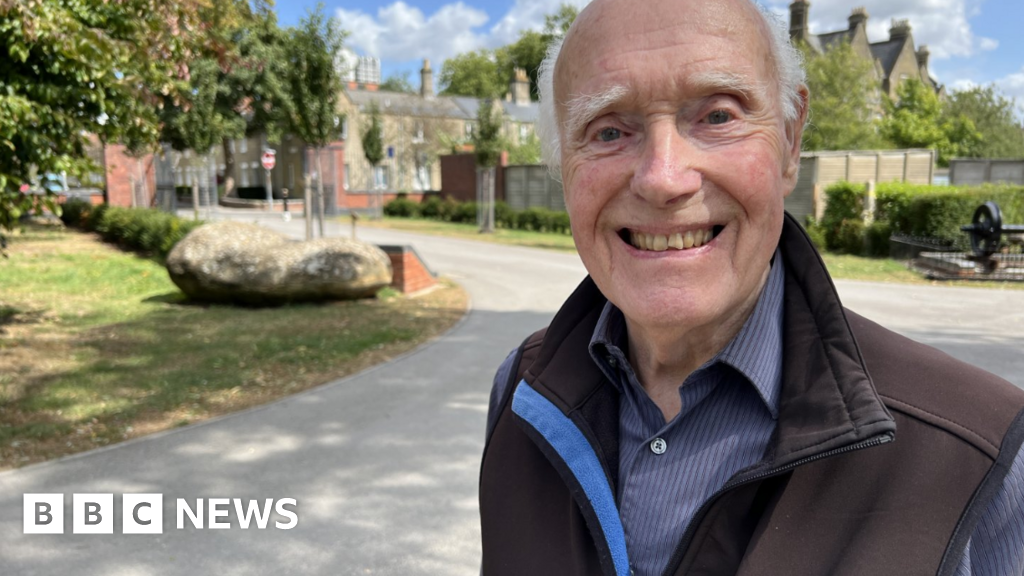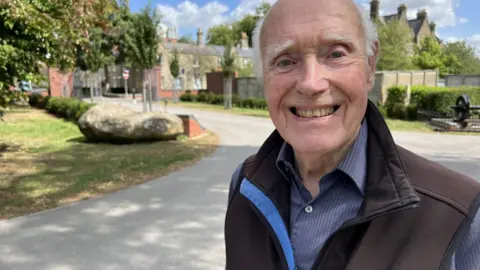 BBC
BBC“I was robbed and mugged here, it was a no-go area”, said 91-year-old Jack Hayward, standing in Swindon’s GWR park.
“What they’ve done to transform it is remarkable”, said the former railway blacksmith, who has lived in Swindon’s historical railway village since 1968.
The changes he’s referring to are part of a project to restore this corner of Swindon to its former glory, after years of decline.
Five years after Swindon Borough Council and Historic England launched the Heritage Action Zone, the change is considerable – but huge challenges remain.
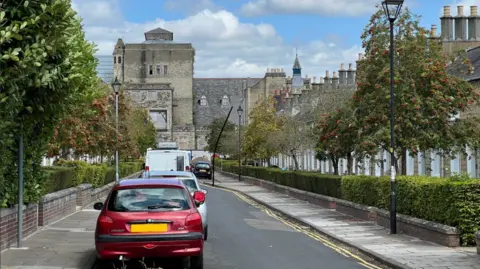
GWR Park
The Railway Village’s GWR Park on Faringdon Road is Swindon’s oldest public park, starting life as a cricket pitch in 1844.
“You didn’t feel safe here”, Mr Hayward said.
He had previously been “robbed and knocked to the ground” in the overgrown and unloved park.
“What the heritage action has done for this place is remarkable”, he said, describing the cleaned-up park, new planting including a rose garden and blossom trees, as well as new signage.
“There’s a new community using it,” he said, describing the wide mix of ethnicities and nationalities making up this area of Swindon.
“It is being fully utilised, it’s a delightful place to come now.”
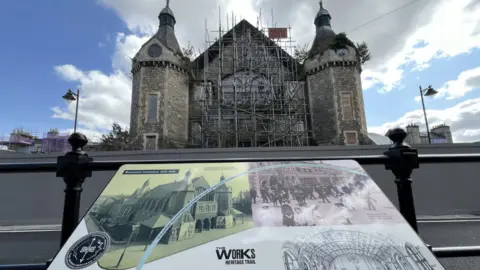
Turning back the clock
The heritage project relies on various pots of funding from Historic England, said project officer Karen Phimister, who explained what had been done.
“Enhancements to derelict buildings, enhancements to public spaces, and promoting the area encouraging people to come to live work and play here,” she said.
It stretches from the GWR park to the railway station, and also takes in the Health Hydro which is part way through a major renovation project.
Throughout the railway village is museum-style signage explaining the history, and bronze medallions built into the pavement marking out new heritage trails.
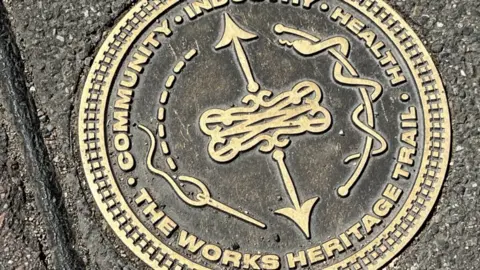
Swindon Borough Council and Historic England have been trying to restore as many of the original features to the streets as they can manage.
That includes redesigning the layout of Sheppard Street and London Street to reflect what century-old photographs show they used to look like.
The former Cricketers pub, which had spent much of its recent life boarded-up, has been restored, with plans for it to become a visitor centre and community space.
“It has completely transformed Emlyn Square”, said Ms Phimister.
Mr Hayward added: “They’ve done a great job of revitalising the area. I’m hoping the 150-year history of Swindon railway works will not be lost.”
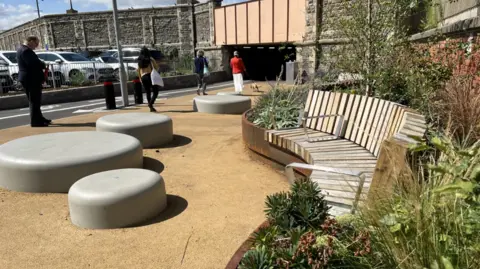
The unsafe canal underpass
The railway underpass off Station Road was an unloved and often unsafe pedestrian route connecting the town centre to the Oasis Leisure Centre, Swindon College and countless employers.
Such was its poor reputation, it was dubbed “muggings underpass” by some.
It has now been renovated and cleaned, with bright lighting, modern plants and seating at the entrance, and is decorated with a mural designed by an artist working with local students.
It is included in the Heritage Action Zone because it was originally the route of the North Wiltshire canal.
“Everyone thinks about Swindon and railways, but in fact the railway was partly facilitated because the canal was here, bringing in coal and stone and water”, said Ms Phimister.
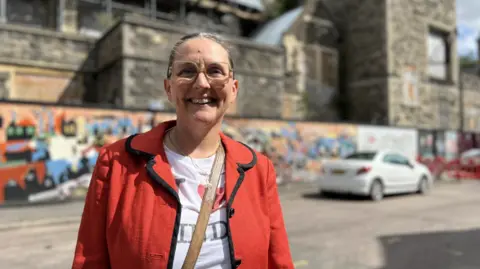
The Mechanics’ Institute
Cultural facilities like the iconic Mechanics’ Institute were once the “centre of the universe” of the railway community, according to Mr Hayward, who remembers going to theatre shows there in his youth.
Since its closure along with the rail works in 1986, it fell into disuse and disrepair.
While new signage and art hoardings explain and celebrate its history, the building itself is no closer to being restored.
“I don’t want to get anybody’s hopes up. This is an incredibly challenging project both in terms of the cost and the legal position”, said Swindon councillor Marina Strinkovsky, warning it would take millions of pounds to reopen.
But she said for the first time in many years the council now has a direct dialogue with the building’s private owners, and is working with Historic England on a potential use for the site.
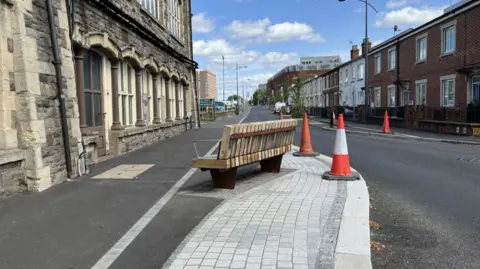
What about that random bench?
Of all the change and investment in the Railway Village so far, it’s a piece of street furniture which has really got people scratching their heads on social media.
A new wooden bench sits on a traffic-calming chicane in a road, at a diagonal angle with a view of a large wall.
“I understand that as a work in progress it is not very impressive”, conceded Ms Strinkovsky, saying it would soon be surrounded by a “pocket park”.
“Once everything is complete around here it will look much nicer and make much more sense in context”.
